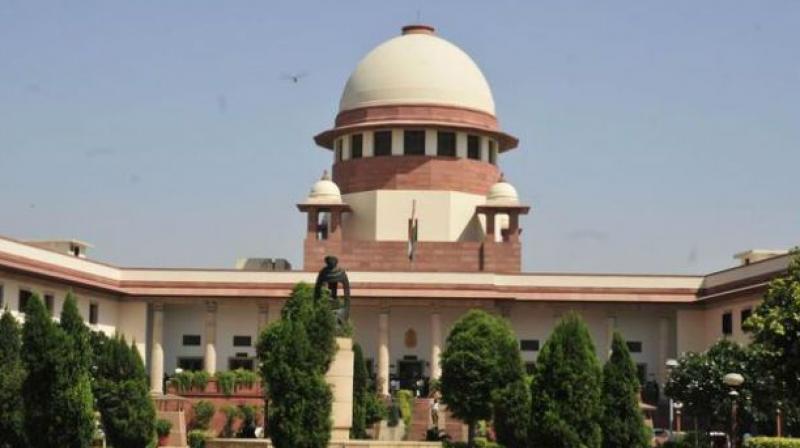Work with Google, Facebook to block explicit videos on internet: SC to Govt

New Delhi: With a view to ensure that explicit videos depicting rape, gang rape (RGR) and child pornography (CP) are not available for circulation on the internet, the Supreme Court has asked the Government of India to work with companies like Google, Yahoo, Facebook and WhatsApp to suggest list of key words that will help in blocking such contents.
A Bench of Justices Madan B Lokur and Uday Lalit passed this order in the petition relating to Prajwala, NGO seeking court’s intervention to block such contents on internet.
The apex court had in February 2015 taken suo motu cognisance of a letter written to the then Chief Justice of India by the NGO Prajwala, along with a pen drive. The pen drive contained two videos highlighting the crime committed by the gang. The NGO, in the letter, sought appropriate action against the culprits, who had the temerity to upload the offensive videos on the internet. The letter was converted into a PIL.
On March 22, the Supreme Court had constituted a technical expert committee to assist and advise this court on the feasibility of ensuring that such objectionable videos are not available for circulation, apart from anything else, to protect the identity and reputation of the victims and also because circulation of such videos cannot be in public interest at all.
The Committee, which included representatives of major search engines like Google, Yahoo and WhatsApp, submitted suggestions and recommendations aimed at blocking such contents during the Google search.
During the in-camera hearing on Monday, the court accepted the 11 proposals and recommendations based on consensus and asked the Government of India to consider implementing them.
It asked internet companies to provide technical support and assist in capacity building to the relevant agencies in India including law enforcement and NGOs through a series of training on online crime investigations, and training on using relevant internet tools.
The Bench in its order said the Centre should work on suggesting key words for blocking the contents. The Centre could take the help of civil society organisations to suggest expansion of the list of key words for showing CP warning ads/Public service message on search.
The search engines expand the list of key words, which may possibly be used by a user to search for CP content. The same may be gradually expanded to other Indian languages where applicable.
The court asked the Centre to set up a separate Cell either within the CBI, or under the aegis of the Ministry of Home Affairs, to deal with internet crimes. It said that there is a need to create a Central Reporting Mechanism (India's hotline portal), as has been done in other countries, like in the US.
Further there is a need to strengthen law enforcement in this area. Any person/organisation should be able to report any CP and RGR content in India with ease with provision for anonymous reporting.
The order said that the Centre should formulate specific parameters for identifying RGR content to ensure expeditious identification and removal.
The court said: “We expect the parties including the Government of India to abide by the recommendations on which there is consensus and to try and implement them at the earliest. We make it clear that any information that is based on or is pursuant to the proposals and recommendations to the Government of India will be kept confidential so as not to reveal the technology used by the participating service providers. The Government of India will prepare a status report on implementation of the recommendations and place it before us in a sealed cover before the next date of hearing on December 11.”

